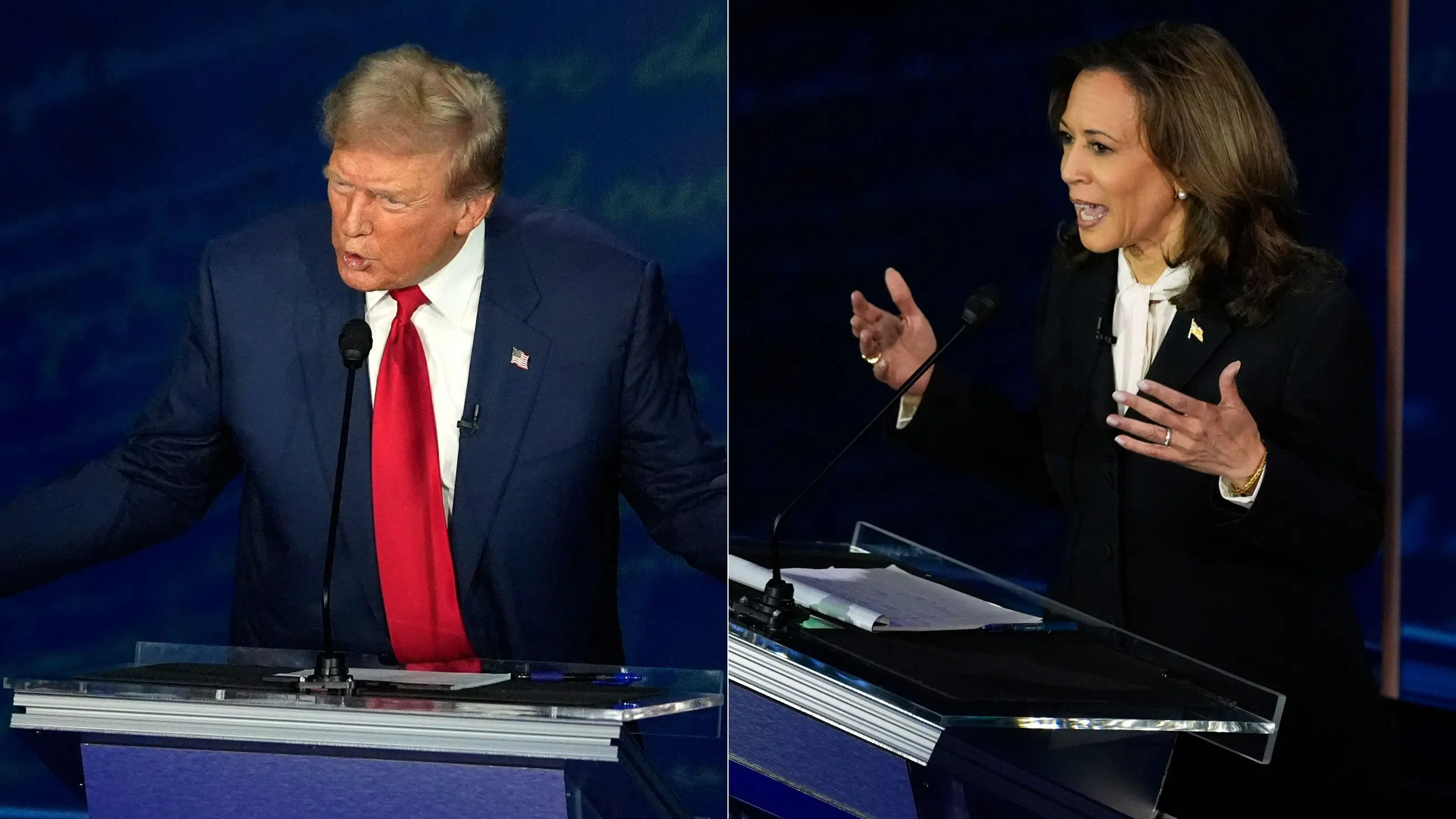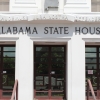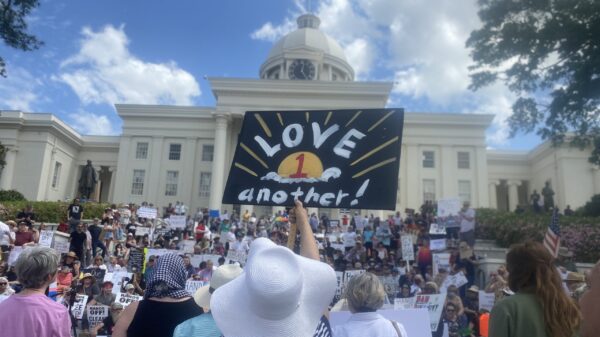|
Getting your Trinity Audio player ready...
|
Following Tuesday night’s presidential debate between former President Donald Trump and Vice President Kamala Harris, APR reached out to Dr. Nicholas Davis, Associate Professor of Political Science at the University of Alabama and head of UA’s Democracy and Open Science (DEMOS) Lab, to hear an academic’s perspective on the two candidates’ performances.
Davis first shared his general thoughts on televised debates as a fixture of modern political campaigning, “Debates are fundamentally strange events: they involve tightly-prepared soliloquies with minimal interpersonal engagement that are mediated through a visual medium that offers a second dimension by which to grade the participants (i.e. their appearance, facial expressions, body language, etc.).”
“The addition of ‘muting’ mics last night did little to improve the spirit or pacing of the debate,” Davis continued. “Although the moderators offered the best in-debate performance regarding fact-checking that we’ve observed, the application of ‘muting’ was not terribly effective. The debate also dragged in the second half.”
Davis then shared his thoughts on the individual candidates’ performances, beginning with their opening remarks, “Curiously, neither opening statement by the candidates was particularly profound. Mr. Trump appeared disinterested, focusing mostly on tying inflation to the Biden Administration and, by extension, to Ms. Harris; his statement included the usual fear-mongering associated with his style of attack.”
“Ms. Harris, in turn, spent her opening statement trying to build a story around her plan for an ‘opportunity economy’ that, while intriguing, was so laden with details that it was hard to follow,” Davis went on. “Hers was probably a missed opportunity to make a simple, symbolic case for a presidency defined by a commitment to democratic values and equality of opportunity.”
Despite his critiques of Harris’s opening statement, Davis went on to explain why he thinks the Vice President’s performance ultimately exceeded former President Trump’s.
“The debate quickly spiraled out of control for the former president,” Davis told APR. “Mr. Trump was light on details, disorganized, and, at times, completely off the wall. He gave in to wild, racist conspiracy theories involving migrants eating pets, opaquely referenced the support of experts and academics that he surely does not enjoy, and displayed an alarming misunderstanding of basic political facts (e.g. how tariffs work).”
“In contrast, Ms. Harris seemed well-prepared, offering details on a range of policy issues competently; some of her responses were more convincing than others, but her appeal to abortion and healthcare rights was especially poignant,” he continued, noting the stylistic and rhetorical differences between the two candidates. “She was empathetic, strong, and clear, which offered a sharp contrast to Mr. Trump’s rambling and, at times, incoherent style.”
Davis also believes that Harris outmaneuvered Trump throughout the evening with an effective gameplan, “Ms. Harris strategically baited Mr. Trump on a number of topics, ranging from the silly (the size and vibes of Mr. Trump’s rallies) to the serious (Mr. Trump’s role in the January 6th insurrection, the Trump campaign’s promise to weaponize the justice system, and Mr. Trump’s friendship with autocrats). Usually, this was followed by wild rabbit trails from Mr. Trump, who looked especially angry and shaken when talking about his campaign rallies, of all things.”
Davis then shed some light on the significance of debates from an academic perspective, describing what sort of ramifications last night’s performances might (or might not) have on November’s electoral outcomes.
“The research on debates in academic political science dovetails with the practitioners’ understanding of these events: they may not have dramatic effects on a candidate’s vote share in November, but they can produce ripple effects that are occasionally significant,” Davis said. “President Biden’s poor showing at the first debate ultimately sped up his exit from the race, for example. Other times, debates may seem significant but have few long term consequences.”
“It remains to be seen whether last night’s debate has any long-term effects, but two takeaways might be reasonably hazarded,” Davis continued. “First, Ms. Harris walks away looking presidential and capable, shoring up any questions from the media about her grasp of the issues facing the country. Second, Mr. Trump looked bitter, old, and not in command of the trolling charisma that he’s displayed in prior elections.”
Davis then elaborated on how this moment relates to the unique set of circumstances that have appeared during this election cycle, most notably President Biden’s late departure from the race in July and Harris’s subsequent taking of the reins as the Democratic nominee.
“With Biden out of the race, the contrast between a younger Harris and an older Trump remains stark; not only do they present wildly differing views about what it means to be an American, but they visually represent different eras, as well,” Davis said.
“Whether the media focuses on Mr. Trump’s age and sloppy performance like they did after President Biden’s poor showing, however, is unclear, but probably unlikely. In fact, Mr. Trump has benefitted from a general lack of introspection about his fitness for office,” he continued.
As for how the debate may have swayed voters, Davis finds it hard to believe that any major swaths of the population would have been won over by either candidate. “It is probably the case that few voters’ minds were ‘changed’ after the debate,” he said.
However, Davis made clear that if anyone made electoral headway on Tuesday night, it was Harris, “At best, Ms. Harris can hope to have made inroads with undecided or casual voters who do not follow politics closely. If so, then that is not an insignificant outcome. Curiously, however, it may have been Mr. Trump who had the most at stake in this debate; his performance was so dismal and his charisma so diminished that I suspect the event may harden his electoral ceiling.”
In closing, Davis stressed the importance of not hyperbolizing the debate’s outcomes and warned that media outlets who try to gauge the impact of these events through panels of ‘undecided voters’ may be inadvertently misleading their audiences to draw conclusions that are not based in real science.
“Nearly all the discourse about ‘changing minds’ and ‘undecided voters’ is hogwash not grounded in any reasonable social science perspective,” Davis emphasized. “Focus groups are valuable for data-gathering purposes under certain conditions, but their usefulness in divining general election voting intent is nearly useless.”
“Not only is it facially absurd that people don’t have opinions on Donald Trump (or Kamala Harris, frankly), but the focus group genre is mostly used to supply media organizations the sort of legitimacy that polls don’t supply (i.e. ‘We’re talking to real people!’),” he continued. “Most of the ensuing discourse about changed minds and undecided voters, then, is going to rest on comically thin empirical grounds.”
It appears that in Davis’s view, the debate, though potentially valuable for the Harris campaign, will likely have a limited impact on voters at the ballot box come November. However, with election day growing nearer and the polls remaining close, the two candidates will continue vying for any and all votes they think they might be able to pick up along the way.



















































